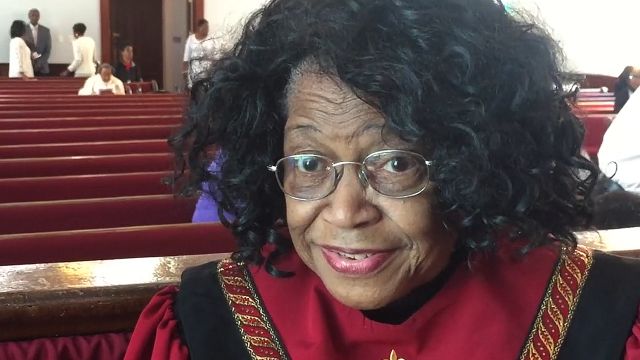 The National Coalition of 100 Black Women Central Alabama Chapter, Inc. will host a nationally simulcast panel discussion on modern day voter discrimination Thursday, May 1, 2014, from 5:30 p.m. to 7:30 p.m. (CST) at the Birmingham Civil Rights Institute, 520 16th Street North. The discussion will cover the history of voter discrimination in Alabama and the impact of the new photo I.D. law on minorities and the elderly populations. This event will be broadcast LIVE at www.ncbwcentral-al.org.
Last year in a landmark U.S. Supreme Court decision -Shelby County v. Eric H. Holder, Jr., Attorney General, et. al. – the State of Alabama fought the inclusion of Section 5 of the Voting Rights Act requiring certain states and local governments to obtain federal pre-clearance before implementing any changes to their voting laws or practices and Section 4(b) of the Act, which contains the coverage formula that determines which jurisdictions are subjected to pre-clearance based on their histories of discrimination in voting. The State of Alabama contended that it “still grapples with race relations issues,” but that the effects of its racist past have “faded away.”
The National Coalition of 100 Black Women Central Alabama Chapter, Inc. will host a nationally simulcast panel discussion on modern day voter discrimination Thursday, May 1, 2014, from 5:30 p.m. to 7:30 p.m. (CST) at the Birmingham Civil Rights Institute, 520 16th Street North. The discussion will cover the history of voter discrimination in Alabama and the impact of the new photo I.D. law on minorities and the elderly populations. This event will be broadcast LIVE at www.ncbwcentral-al.org.
Last year in a landmark U.S. Supreme Court decision -Shelby County v. Eric H. Holder, Jr., Attorney General, et. al. – the State of Alabama fought the inclusion of Section 5 of the Voting Rights Act requiring certain states and local governments to obtain federal pre-clearance before implementing any changes to their voting laws or practices and Section 4(b) of the Act, which contains the coverage formula that determines which jurisdictions are subjected to pre-clearance based on their histories of discrimination in voting. The State of Alabama contended that it “still grapples with race relations issues,” but that the effects of its racist past have “faded away.”
“Alabama has made great progress over the years concerning voter equality and race relations and it is our hope that all new legislation will move us forward and not backwards, said Bea Tatum, President, NCBW Central Alabama Chapter, Inc. This event brings the new voter requirement to the forefront and gives the citizens of Alabama and the world (via simulcast) an opportunity to discuss the potential discriminatory effects of this new law and any changes needed to create voter equality. On June 25, 2013, the Court ruled by a 5-to-4 vote that Section 4(b) is unconstitutional because the coverage formula is based on data over 40 years old, but did not strike down Section 5. The Court, in its wisdom, concluded that sufficient progress towards eliminating voting discrimination had been made, although vestiges still exist. The Court also contends that unless it could be proven that state laws were enacted for offensive purposes, states could still use election practices that prevented black voters from electing candidates of their choice. Furthermore, the U.S. Supreme Court decision cleared the way for Alabama’s new, potentially discriminatory, voter photo I.D. law to be in effect beginning with the June 2014 primary election.



